Fizzling out in the summer: Just like last year and the year before, the heat in the property market has started to fizzle out early May. In the last five years, the customary spring market has been getting earlier and earlier. Followed by summer cooling. There are a number of reasons for this
- the property market is being driven more by city bonuses in London and provincial cities - the expectation of bonus payments has made the more competitive minded investor start looking earlier to prevent being caught up in a hot market.
- the stock market tends to do well from November to mid May then cool or go into reverse during the summer months – this knocks confidence.
- GDP, employment and manufacturing levels are higher in the October to May periods – creating confidence early in the year that peters out when the economy slows mid year.
 |  |
Interest rates have risen to 5.5% and there is at least one more rise anticipated as early as this month, with the possibility of a further rise of 6% by year end. This should cool the property market significantly moving towards the end of the year.
But bonuses back on the horizon: In London and SE England, again, a wall of bonus money like no year before will be hitting the streets starting January 2008 and ending May 2008. This should revitalize the SE and southern English property markets. Other financial centres such as Edinburgh, Leeds and possibly Manchester and Glasgow will also benefit this wall of money. Most people receiving big bonuses have much net worth and equity held in property, so a few ¼ point rises in interest rates should not unduly affect them. So prices in the most select areas of London, Leeds , Edinburgh and Manchester will likely continue to rise. Belfast will also continue to perform well because it is still playing "catch up" from years of underinvestment and low confidence levels during the troubles. So do not be surprised to see prime central London property prices continue to drive forwards into 2008. Central/West London areas popular with the most wealthy international professionals and investors are likely to go up the most – Chelsea, Kensington, Mayfair, Soho, Bloomsbury, Hampstead, Notting Hill and Bayswater are examples.
Bonuses in the USA: The same is true of New York, Massachusetts, Boston and parts of California (LA, San Francisco San Fernando). The Dow Jones has reached record highs, M&A activity has been good and global business is doing well. New York has lost some ground to London, but global finance has performed well so far in 2007. Hence these city bonuses will arrive Jan 2008 to May 2008 and generally be heading for the best areas of NE USA and California. Do not be surprised to see property prices in such areas growing in early 2008. Some Euro and £ Sterling investment may also be taking place because of the weak dollar.
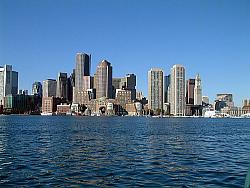
Mediocre Midlands: Average suburban areas in regions not affected by city bonuses and holiday home investments are likely to see prices stagnate – examples are most of the Midlands, and many northern areas, and remote parts of Wales and East Anglia. Areas exposed to manufacturing and public sectors will show less growth than areas exposed to services sectors. The south-west would likely escape a severe slowdown because of its popularity with wealthy people working in London (second homes, holiday homes, buy-to-let investment property).
Cornwall : This is an interesting market – the county has the highest projected population growth of any county in the UK yet barely any homes are being built because of planning and environmental constraints. Despite having about the lowest affordability ratio between local earned income and house prices, it's likely prices will continue to move higher because of influxes of telecommuters and retiring baby-boomers in the next 5-10 years. This once depressed corner of England – which suffered from the collapse of tin mining and agricultural jobs in the 1960s to early 1980s is now booming in towns like Truro and Falmouth. We can't see any house price crash in Cornwall, or similar select localities in southern England.
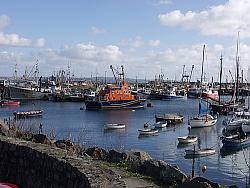 |  |
UK Economics Laid Bare
With inflation running at 2.8%, GDP growth motoring onwards at 2.7% (4.0% in London, down from 4.4% earlier this year), employment at record levels and wage growth in the 4.0% to 4.4% range in 2007, the economy shows no signs of falling into stagnation or recession. This should support house prices – if any correction is due, it is likely to be in the 5-10% range rather than a fully fledged crash (say 30%). So far in UK history it is unheard of to have a crash without a recession. However, inflationary pressures have been building and the predicted drop in the inflation rate to below 2% has now shifted from later in 2007 to mid 2008 according to the Bank of England forecasts. Oil prices remain a concern – these have risen from 53$/bbl earlier this year to $66/bbl in May. Tensions in Iran (threat of the closure of the strategic Straits of Homez because of Iran 's nuclear testing programme) remain a concern – because any big hike in oil prices would immediately feed through to inflation and cause interest rates to rise significantly.
Meanwhile, the EU economy also motors onwards at 2.7% GDP growth and generally lowering unemployment – the European economy is now growing faster than the US economy whose economy has cooled to 2.3% GDP growth for 2007. China's economy is fast expanding at 11% (higher than the ten year average of 9.5%) and this has become the prime global growth engine as the US economy has cooled. Overall, the economic environment looks healthy and benign with no discernable threat of recession. It would need a trigger like a financial market collapse in a G7 county, war and/or oil price spike above $100/bbl to create such a recession. It looks unlikely, but eyes should watch whether USA achieves its expected "soft landing" and the Iran tensions subside – with oil prices remaining below $70/bbl. We'll keep you posted, but so far it does not look like the right conditions in the UK or the USA for a big property price market correction.
Business Cycles
Those people with long memories or interest in history will note that in the UK (and many parts of Europe and USA ), there have been recessions or severe economic slowdowns in:
- 1971 (oil price shock)
- 1981 (oil price shock)
- 1991 (monetary shock)
- 2001 (dotcom bust and 9/11)
We are now motoring away in 2007 and all looks rosy. We may be mid cycle, heading towards the end of another ten year cycle. Pressures are undoubtedly building with inflation, oil prices and commodities shortages. The UK and US babyboomers are aging and are likely to start re-trenching (likely the Japanese did in the 1990s) – our prediction is by around 2012 these boomers will start to reign in spending. Stock markets have had a long bull run from their lows of 2002, so risks have increased. It's not likely to look much better than this.
The experts will say, whenever it looks great, benign and stable, the whole lot starts to wobble. So do not be surprised if we get a shock any time from now until 2012. It only takes someone to close the Straits of Homez to create a global oil crisis and for the whole lot to start heading to recession. So our advice is, stay alert to the risks for your property investments. Do not ever think it can't get worse. But remember – if you know your business well – and you can take managed risks – you will make money in any business climate. Try and avoid paying prices at the top of the market. Don't ever get arrogant or "take your eye off the ball". Don't believe you are an expert. But focus on what you know best – if this is council flats in Liverpool and you know how to make money from them, then focus on this. Become a master at it. Use your intuition and knowledge, plus social and economic trends, to give yourself insights into whether a market in an area has reached its peak. Don't over-extend. Don't pay more than you have to. Watch your cash-flow like a hawk. They say to make a million is easy, but keeping it is the tough bit.
Boom towns around the world
For the adventurous and international property investor, we can provide some interesting insights into the current boom towns. Many of these cities are little heard of. Many are booming because of mining, oil and extractive industries. Quite some research has gone into preparing this list for our website visitors. The main sector themes cities where oil, mining or financial services have been very strong – there are no indications this will change in the next few years. Many analysts believe we are in the middle of a commodities "super-cycle". The reason is because of China and India 's appetite for raw materials, global population growth and the European and USA's continued reliance on these same raw materials. Other boom towns are tourist related – others a combination oil, financial services and tourism (e.g. London). But one thing is for sure - in all these cities and areas – populations are increasing, jobs are being created and not enough homes are being built. The ideal combination for property prices to rise.
- Green River Wyoming – coal mining
- Limpopo Mpumalanga Rustenburg – Rep South Africa – platinum and chrome mining
- Houston – global oil & gas services
- Macao – gambling, tourism
- St Petersburg – oil & gas, tourism, finance
- Moscow – oil & gas, tourism, finance
- London – financial services, wealth management, M&A
- Bratislava Slovakia – low cost proximity to Vienna, E Europe boom
- Warsaw Poland – EU integration, low cost, increasing wealth
- Muscat – oil & gas, tourism
- Luanda Angola – oil development
- Doha Qatar – gas developments
- Mongolia – mining, proximity to China
- Dubai UAE – oil, financial services, tourism
- Cape Town Rep South Africa – tourism
- Fort McMurray & Calgary Canada – oil sands developments
- Aberdeen Scotland – international oil & gas services
- Stavanger Bergen & Kristiansen Norway – oil and gas operations
- Bangalore India – IT/call centres/communications/services
- Mumbai India – financial services, manufacturing
- Guangdong province, China – global manufacturing
- Shanghai, China – financial services, manufacturing, export
- Beijing China – public sector, services
- Ho Chi Minh City Vietnam – manufacturing and services
- Buenos Aires Argentina – business and services
- Cairo Egypt – regional business centre
As advised on our website, if one has a combination of:
- Increasing population
- Increasing employment
- Increasing business (GDP growth)
- Increasing wages
- Low levels of home building
- Low reliance on imported oil and gas
- Low interest rates
- Low inflation
- Exposure to financial services sector
- Land shortage and/or environmental constraints
This powerful combination will lead to booming property prices.
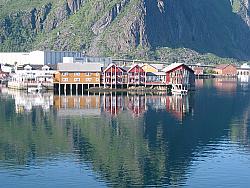 Norway : If one uses these criteria for cities like Bergen in Norway it's difficult to see how prices would not continue rising. London is the same – it's also a global centre of oil and commodities financing and re-investment of proceeds from the extractive industries that are booming. Moscow is similar albeit more regional in its sphere of influence.
Norway : If one uses these criteria for cities like Bergen in Norway it's difficult to see how prices would not continue rising. London is the same – it's also a global centre of oil and commodities financing and re-investment of proceeds from the extractive industries that are booming. Moscow is similar albeit more regional in its sphere of influence.
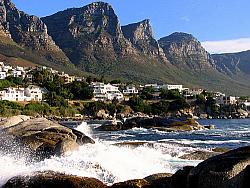 South Africa : Localized gems occur such as Rustenburg to the west of Pretoria in South Africa. The population is booming as 25,000 new jobs are being created in the expanding platinum and chrome mines. Pretoria is also worth considering with its access to Johannesburg government employment – it is the regional centre of the Bushveld Complex of minerals and mines, with most mines within a 100 km radius of the city.
South Africa : Localized gems occur such as Rustenburg to the west of Pretoria in South Africa. The population is booming as 25,000 new jobs are being created in the expanding platinum and chrome mines. Pretoria is also worth considering with its access to Johannesburg government employment – it is the regional centre of the Bushveld Complex of minerals and mines, with most mines within a 100 km radius of the city.
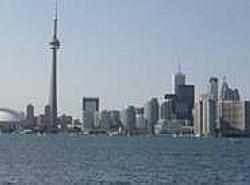 Canada : Fort McMurray in NE Alberta, Canada is booming oil town. A huge wave of new jobs have been created in the oil sands business – accommodation is desperately short and rentals are in big demand. Many billions of dollars are being invested to grow oil sands production – in part because this makes the USA less reliant on overseas imports. This is something not likely to go away – hence Fort McMurray will likely see prices booming into the future. Calgary the centre and HQ of the Canadian oil & gas business is another booming town – and a pleasant place to live as well. The creation of new oil and gas jobs and wealthy retiring oil workers will likely support prices into the next decade.
Canada : Fort McMurray in NE Alberta, Canada is booming oil town. A huge wave of new jobs have been created in the oil sands business – accommodation is desperately short and rentals are in big demand. Many billions of dollars are being invested to grow oil sands production – in part because this makes the USA less reliant on overseas imports. This is something not likely to go away – hence Fort McMurray will likely see prices booming into the future. Calgary the centre and HQ of the Canadian oil & gas business is another booming town – and a pleasant place to live as well. The creation of new oil and gas jobs and wealthy retiring oil workers will likely support prices into the next decade.
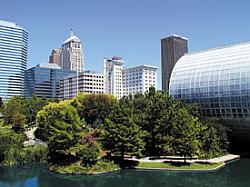 USA : The Green River area of Wyoming is another gem – who would believe that in 2007, a boom is taking place in a coal mining area in the USA? This part of the world has more barrels of oil equivalent of hydrocarbons (locked up in coal) than Saudi Arabia and Russia combined. The USA will never be short of fuel for electric power station because some of these coal seams are 50 metres thick and mines are open-cast and of the highest quality anthracite coal. Huge wealth is being created as production is increased and this is supporting rentals and property prices in this remote area of the USA.
USA : The Green River area of Wyoming is another gem – who would believe that in 2007, a boom is taking place in a coal mining area in the USA? This part of the world has more barrels of oil equivalent of hydrocarbons (locked up in coal) than Saudi Arabia and Russia combined. The USA will never be short of fuel for electric power station because some of these coal seams are 50 metres thick and mines are open-cast and of the highest quality anthracite coal. Huge wealth is being created as production is increased and this is supporting rentals and property prices in this remote area of the USA.
Mongolia : Mongolia is another gem – yes, this area is booming. The reason is its minerals mining. China is desperate for its products and there is a property boom to match the mining boom. It's not likely to go bust unless China's economy goes bust – something most unlikely in view of the sustained 9.5% GDP average growth over the last ten years and China's hugely increasing middle classes and 1.2 billion population next door. Mongolia has also benefited from being next door to booming Russia and the Siberian oil and gas fields. Some gas pipeline projects run close by and as long as there is peace in the area, Mongolia's fundamentals and booming population look impressive.
Macao : Property prices have been booming for five years – massive investment in casinos and neighbouring China's booming economy, middle classes and interest in gambling has made Macao the rival of Las Vegas. Difficult to see this changing – all the money being made in manufacturing in southern China will benefit Macao – talk of Richard Branson investing in the area is interesting. He's well known for getting in early – the future looks bright for Macao.
Egypt : Cairo is an interesting city. Huge traffic jams everywhere, pollution, rumour has it the true population of Cairo conurbation is 25 million. No wonder the traffic never moves. This regional business centre has benefited from relative peace, expanding oil and gas businesses north and east, and a booming population. Property in the city centre for business people wanting to avoid the traffic jams is worth considering. Always at risk of instability but the city will likely further double in size over the next 50 years, making central property values increase.
Wealth and Amenities – the meaning of Location, Location, Location
 London and New York – examples: Ever wonder why property in central London and Manhattan are so expensive? Because of wealth and amenities. The wealth is from businesses, private investors, shareholders and corporate headquarters – financial, banking, services jobs. But the reason why so many people want to pay huge prices for such property is because of the local amenities. Shops, theatre, trains, planes, work-offices, tubes/metro, roads, restaurants. Proximity to high paid jobs, where profits are made and a nice residential environment are key. So in London when you think of Mayfair it ticks all the boxes. So does Covent Garden. So does Kensington. But can prices in such areas go any higher? This depends on how successful the businesses close by are doing. London has been gaining relative ground on New York as a premier global financial centre – in part because it is less regulated and in part because of the huge wave of Middle Eastern, Asian and Africa money that has found its way to London – a truly cosmopolitan global city. So if you think global finance stimulated by China India and the Middle East will prosper, buying property in Mayfair could still be good value for money.
London and New York – examples: Ever wonder why property in central London and Manhattan are so expensive? Because of wealth and amenities. The wealth is from businesses, private investors, shareholders and corporate headquarters – financial, banking, services jobs. But the reason why so many people want to pay huge prices for such property is because of the local amenities. Shops, theatre, trains, planes, work-offices, tubes/metro, roads, restaurants. Proximity to high paid jobs, where profits are made and a nice residential environment are key. So in London when you think of Mayfair it ticks all the boxes. So does Covent Garden. So does Kensington. But can prices in such areas go any higher? This depends on how successful the businesses close by are doing. London has been gaining relative ground on New York as a premier global financial centre – in part because it is less regulated and in part because of the huge wave of Middle Eastern, Asian and Africa money that has found its way to London – a truly cosmopolitan global city. So if you think global finance stimulated by China India and the Middle East will prosper, buying property in Mayfair could still be good value for money.
Other examples: This same model applies to other areas and cities. It's no good investing in a lovely Georgian Mansion in NW Scotland – it ranks low on almost all the above criteria. You won't find many millionaires wanting to live in the sticks – it's too far from where they like making money. And enjoying their money. So Monaco, Luxemburg, London, Stockholm, Helsinki, Geneva – they're full of wealthy people who want to be close to the best amenities. It's probably the case in Barcelona, Marbella, Miami, San Francisco and Shanghai – 'location, location, 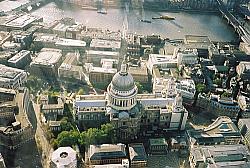 location', as they say. Never forget this. If you find a location very close to excellent amenities that you believe will have increasing numbers of wealthy residents and is under-valued, go for it! Some examples in London are:
location', as they say. Never forget this. If you find a location very close to excellent amenities that you believe will have increasing numbers of wealthy residents and is under-valued, go for it! Some examples in London are:
- Shoreditch
- Bermondsey
- Southern Hackney
- Telegraph Hill - New Cross Gate
- East Dulwich – Peckham borders
- Battersea
- Kennington - Vauxhall
 Luxemburg - another good example: And remember our analysis of Luxemburg? No other European city has such an exciting combination of land shortage, population growth, massive wealth and GDP growth – a lovely city to live in – some of the most wealthy Europeans will want to a place in this city tax haven and financial wealth centre.
Luxemburg - another good example: And remember our analysis of Luxemburg? No other European city has such an exciting combination of land shortage, population growth, massive wealth and GDP growth – a lovely city to live in – some of the most wealthy Europeans will want to a place in this city tax haven and financial wealth centre.
Disillusioned with "work"?: Ever feel like your current job is leading nowhere? Get frustrated with the lack of control you have over your life, work and your diary? Looking for an outlet? Then may be property investment is for you! Everyone needs a hobby to relieve themselves of the stress of work or daily drudgery. What better way than to indulge in something that makes you personal financial progress, gives you more financial control of your life, and let's you take your mind off the pressures of work. This is how many property investors first get started. Out of frustration and a feeling of drifting in their work lives, being over taxed and underpaid as an employee for their precious time. Disillusioned with pension and stock performance. Being tired of putting money into funds that other people (mis) manage. If this all sounds familiar, then this is likely the reason you have got to this stage in this newsletter. We sometimes have people ask us – "what sort of people come to your website" – it's pretty obvious when you see the name of the website. You would not be visiting if you were not interested in property investing. That is – making money from investing in property. It's not always easy, but we've not found any other better way to make serious money. Almost all financed by the banks. You leverage up your minimal amount of cash, using the bank's finances in order to exposure oneself to property – and if capital values go up, it's quite possible to double your cash in a year. There are few property investors that have not achieved this some time in their investing history. Many achieve it  regularly – year-on-year. You won't find many advertising this fact though. Why should they? Most people don't like other people knowing how much money they have. The purpose of writing this closing contribution is to help you think about why you are investing in property. It's likely because you want to make serious money and it's probably because you enjoy it was well. So what an excellent combination. You like it and you make serious money out of it. If this is the case, best do more of it! And you might even consider doing it full time!
regularly – year-on-year. You won't find many advertising this fact though. Why should they? Most people don't like other people knowing how much money they have. The purpose of writing this closing contribution is to help you think about why you are investing in property. It's likely because you want to make serious money and it's probably because you enjoy it was well. So what an excellent combination. You like it and you make serious money out of it. If this is the case, best do more of it! And you might even consider doing it full time!
